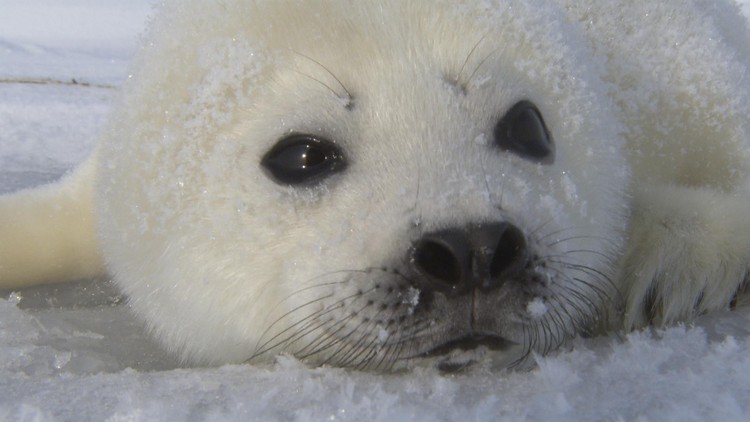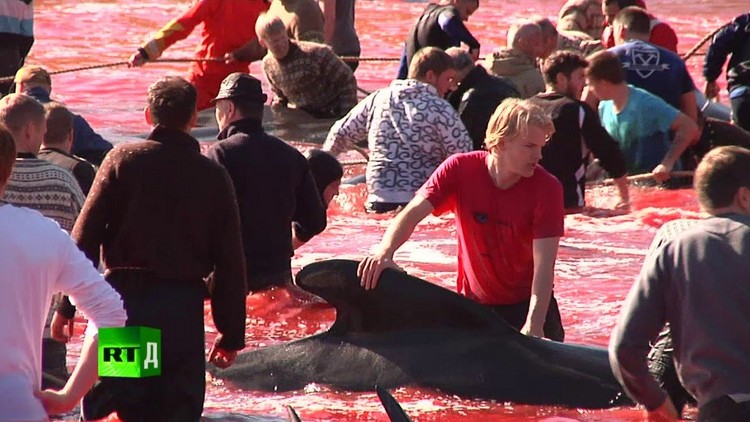Faux outrage over foie gras: Liver ban leaves producers livid

A pack of foie gras could easily be found in the United States until a recent wave of bans swept the country. Foie gras, meaning "fattened liver" in French, is a delicacy made from geese and ducks, which are force-fed. There are strenuous efforts to put a stop to the inhumane practice of force-feeding birds, called "gavage", a traditional and vital stage in producing the delicacy. Animal rights activists have long campaigned for a nationwide ban on the production and sales of a product that, they say, is produced so cruelly.
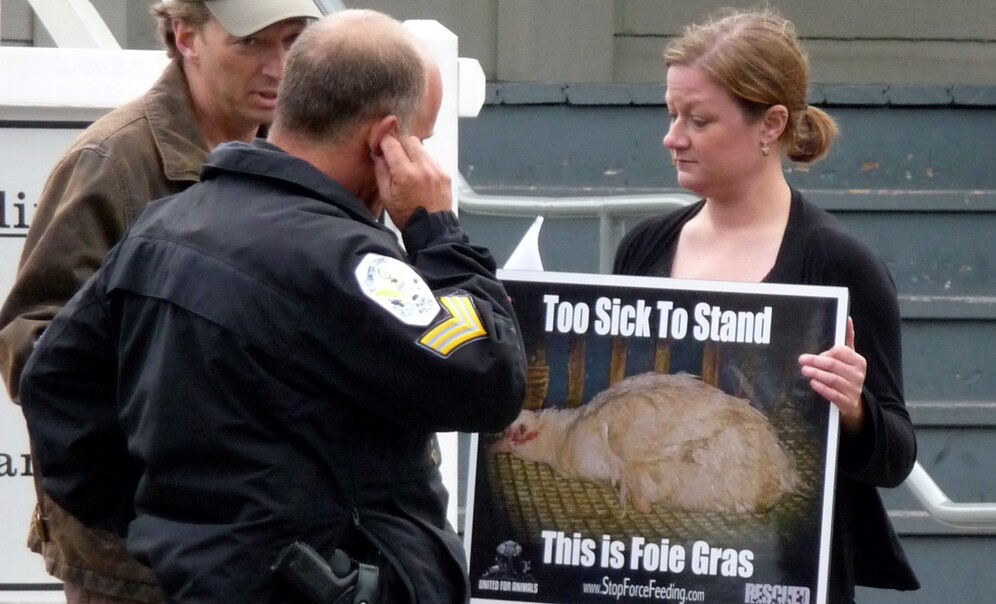
The animal welfare movement in the US has made significant progress in recent decades and seems determined to improve living conditions for all animals raised as food. Ducks and geese became the first target. In 2006, Chicago was the first major US city to attempt to prohibit foie gras sales, only to have the law revoked after just two years. California followed suit, banning foie gras production and sales in 2012 after a tumultuous legislative journey. New York City passed similar legislation in October 2019. The ban on foie gras sales will come into effect from 2022 in every store and restaurant in the city.
While delivering the news, Mayor Bill de Blasio sided with the "average Joe", calling foie gras "a luxury item that the vast majority of us would never be able to afford," adding, "this is not where we should be shedding a tear." In so saying, he expressed a popular, rather than personal, sentiment, capitalising on resentment of the rich and those with expensive taste. It also pays little heed to how such decisions impact the industry and the "average Joes" who work in it.
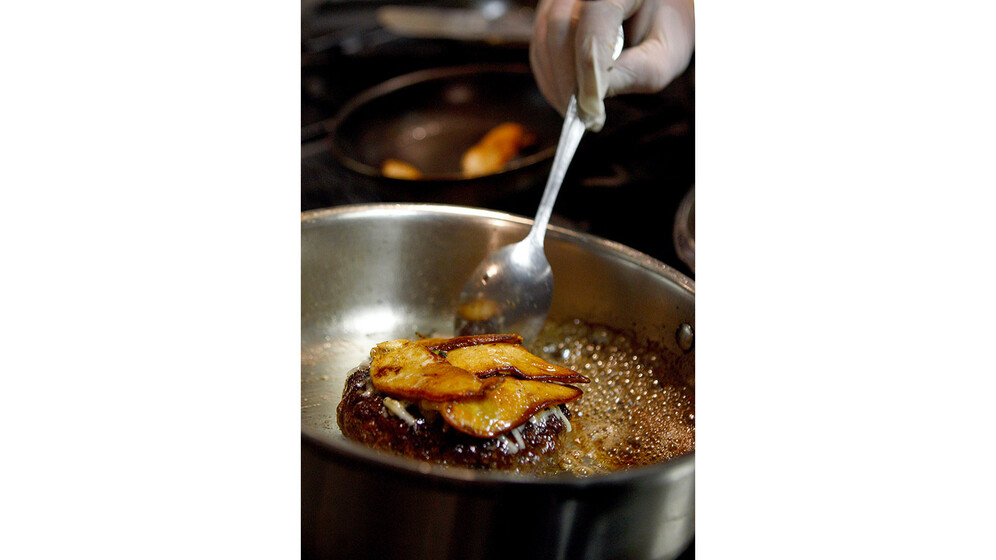
The Californian ban meant that the state's only foie gras producing farm had to close, while the New York bill could lead to the demise of at least two major local farms and their 400 employees, mostly new immigrants. Farm owners desperately tried to reverse the odds and prevent the ban from going into effect. They urged activists and City Council members to visit the farms to see first-hand whether or not the ducks did indeed have lives of wretched suffering, as the campaign graphically claimed. However, no one bothered to visit. The argument that the farms were vital in the state's second-poorest county, one "already facing a horrific opioid problem and economic depression," also left legislators undeterred.
Even though 81 percent of New Yorkers said, in a recent poll, that they support a ban on the sale of foie gras, plenty of questions remain regarding the sense and timing of this legislative move. A ban on the sale of foods produced through force-feeding was suggested as part of a package of New York City animal-welfare bills. It sought to restrict everything from the sale of real fur to horse carriage rides. However, fur and horse carriages remained untouched in the end, while foie gras producers got the raw end of the deal.
Many argue that fowl liver was an easy target because very few Americans eat it, and it's easy to work the public into a frenzy with videos of poor birds with tubes stuck down their throats. Meanwhile, the welfare of chickens and turkeys, the consumption of which in America beats duck liver by a landslide, receives little or no attention. Numerous reports say that the most egregious treatment of animals raised for food occurs in factory poultry farms run by large corporations, which are clearly much harder to hold to account than small independent farmers.
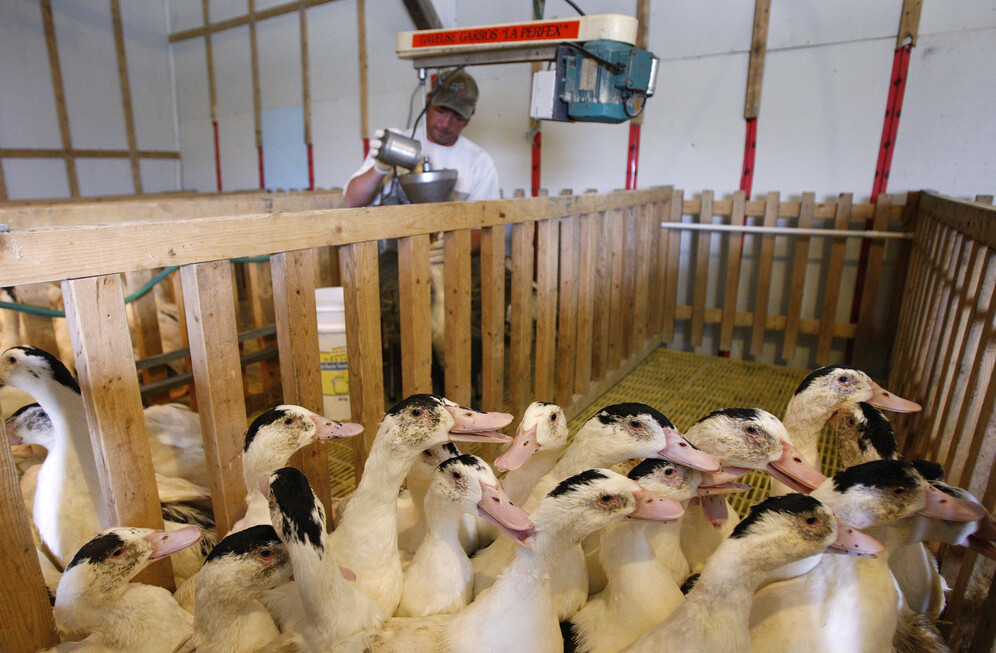
For one thing, experts still can't agree on whether force-feeding is harmful to the birds subjected to it. Animal rights activists like Josh Balk, vice-president of farm animal protection at the Humane Society of the United States, say shoving "pipes down an animal's throat to cause them to have liver disease, it is clearly cruelty to animals." Other fowl experts insist that as migratory birds, ducks and geese habitually stuff themselves with high-calorie grain for two weeks before migrating twice each year.
They also argue that the resulting liver enlargement is reversible, merely being a physical adaptation that helps them survive hungry times. This phenomenon, in fact, allows for the production of so-called "ethical" goose liver. It sources livers from geese slaughtered when they stop on the farm to gorge on olives and acorns before migrating further south each year. Quite naturally, such an exclusive product is considerably more expensive than its commercially produced varieties, but it's definitely gaining momentum – thanks in no small part to the hysteria surrounding gavage.
Anti-foie-gras lobbyists put a great deal of effort into stigmatising the tiny industry and its customers. One might though stop and wonder, why has this suddenly become such an inflammatory issue in a country where average yearly consumption of the delicacy amounts to half a gram (0.5g!) per person? Although it's unlikely that America's politicians are seeking to pave the way to a 100%-vegan world that's given up on all animal products.
Some animal-rights groups, like PETA (People for the Ethical Treatment of Animals), have vilified foie gras along with pork, veal, dairy, leather, fur, goose down and even wool, but this is surely a vision too radical to contemplate.
Still, perhaps the politicians, who will never go after the multi-million-dollar meat and poultry industries, thought that outlawing foie gras would be an easy way to earn points from animal activists, vegans and environmentalists without offending too many constituents. And they did!
The real question is, what comes next? As one Reddit user reasonably suggested "If they can ban foie gras, then maybe the cooking of live lobsters is next. Or shucking a fresh oyster while it's still alive. Extremely likely, especially if the legislators proceed from the assumption that lobsters and oysters are "luxury item(s)" that the vast majority of us would never be able to afford.
The statements, views and opinions expressed in this story are solely those of the author and do not necessarily represent those of RTD.
